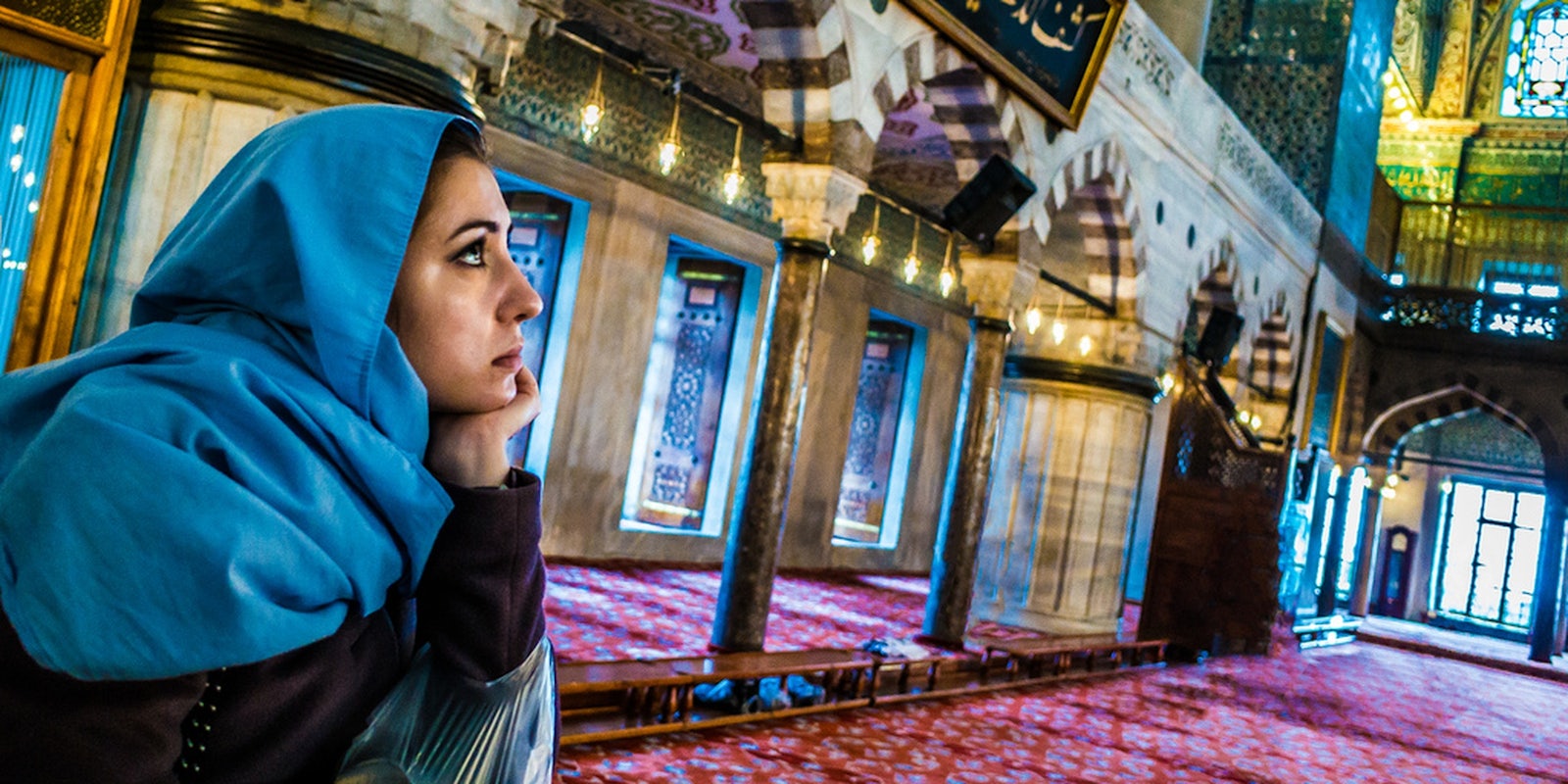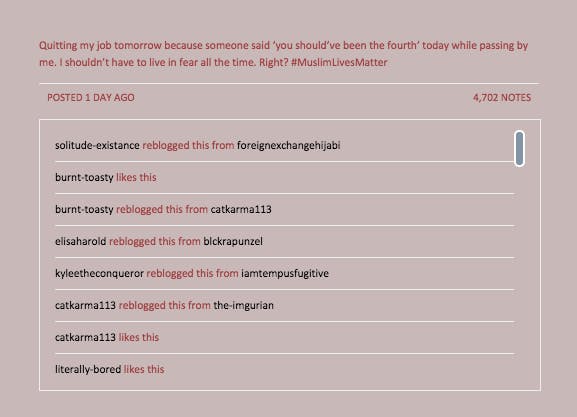Three young students are shot at their home and the preliminary motive given by police is a parking dispute. As the details of the murders of Deah Barakat; his wife, Yusor Mohammad; and her sister, Razan Abu-Salha begin to unfold, the victims are identified as three young Muslim Americans. Two of the victims wore hijabs in adherence with Islamic tradition, specifically marking them to the world as Muslims.
Social media erupted Tuesday evening as many scrambled for more information, while many mainstream news outlets turned a blind eye and local authorities were tight-lipped about revealing the victims identities, even to their families. In a matter of hours #MuslimLivesMatter trended on Twitter as many expressed outrage that social media alone was covering the story. My own Facebook, Tumblr, and Twitter feed flooded with updates from community leaders, family, and friends of the victims. As we learned more details of the heinous nature of the crime, the “execution style” murder, those following the story on social media called for an explanation and investigation of the events.
I soon noticed that only my Muslim friends were aware of what was happening in Chapel Hill, N.C. As persons outside the Muslim community learned of the tragic crime through Twitter and Facebook, some wanted to focus on the loss of innocent lives rather than the larger religious and racial implications behind the incident. However, as the Raleigh, N.C., community mourned and worked through their shock and grief, both Deah’s sister, Suzanne Barakat, and the father of Yusor and Razan, Mohammad Abu-Salha, urged a hate crime investigation by authorities.
While well-intentioned, those who ignore the act’s Islamophobic context are missing the point. This was not a random act of violence. This heinous murder may have started as a parking dispute between the victims and Craig Stephen Hicks, the alleged shooter, but Hicks’ prior encounters with the victims, as well as the fact that the female victims were dressed in traditional headscarves, show that there is more to the story. At least two of the victims’ friends recount stories of intimidation with a gun by Hicks. These details matter, and they are important in understanding how a parking incident can boil over into the murder of three innocent students.
This was not a random act of violence.
In the past decade, hate crimes against Muslims have been on the rise—the FBI’s Hate Crime Statistics indicate that hate crimes against Muslims, or those perceived to be Muslim, are five times higher than they were before 9/11. (Since hate crimes tend to be underreported, the Muslim Public Affairs Council indicates that the number could be higher.) In my own community, a local mosque was burned and vandalized, and reports indicate that an Islamic center in Houston caught fire today, as authorities investigate the possibility of arson. While hate crimes against Muslims in France skyrocket after the Charlie Hebdo attacks, I have also faced Islamophobia as random strangers yell profanity and “go home” at me from the comfort of their cars.
On Twitter, many users have alleged that #MuslimLivesMatter tweeters are overreacting. User @bart_smith writes: “We’re too quick to label #ChapelHillShooting a hate crime based solely on the profile of the suspect and the victims.” Tweeter @stevebuttry agrees: “I’d rather see slower build to national coverage of story like this than immediate overreaction before we know facts.” And in the comments section of a Washington Post story on the shooting, responders further expressed animosity toward Muslims “jump[ing] to victimization.”
In an op-ed for Right Wing News, William Teach best summed up this problematic reasoning:
The thing is, we do not know why Hicks murdered the three people. Was it because they were Muslim? Was it over a disagreement, or some slight? We really do not know at the moment.
We do know that if #MuslimLivesMatter, perhaps they should stop killing each other so willy-nilly around the world. Maybe they could come more forcefully against things like ISIS beheading people, like another recent event where they took the heads of eight men accused of being members of Israel and Egypt’s armies.
However, since the murders, at least one incident was reported in the Dallas-Fort Worth area of a female Muslim student being followed and harassed because of her hijab, while another was threatened while she walked to school. A friend of mine who works at a Forever 21 in Texas while she works toward her degree in fashion design was told “you should’ve been the fourth” by a customer passing by. As she explains in a Tumblr post, she has called in sick the past few days while she contemplates quitting her job.
All three women wear the headscarf and are clear symbols of Muslims living in the United States. Just as we felt in the days after 9/11, many of my friends feel unsafe and threatened, and who can blame them? In the wake of the shootings, sympathizers have sent messages of support to Hicks, telling a man who killed Muslim American students that he’s a “national hero.” Another wrote, “3 down…x many to go.” In the past couple days, a Facebook page went up to honor the fact that he ended the life of three promising young adults (although the page was removed by the site). So for those that think we are overreacting, Muslims beg to differ.
For those that think we are overreacting, Muslims beg to differ.
Hate crimes and Islamophobia constantly haunt every Muslim American simply trying to do as Deah, Yusor, and Razan did: get an education, love their families, and serve their local community. There is a tendency to ignore the voices of people of color when they try to shed a light on complex issues such as underlying bias and hate-motivated crime.
The #BlackLivesMatter movement was criticized for not focusing on #AllLivesMatter, but when the focus becomes all lives, then we dilute the message that black lives are marginalized. The hashtags #BlackLivesMatter and #MuslimLivesMatter attempt to bring awareness of incidents where Muslim and black lives are trivialized in the face of large underlying societal bias. By accusing black folks or Muslims of blowing things out of proportion, the underlying racism and Islamophobia within the United States is swept under the rug, never to be addressed.
While the Islamic community continues to mourn the loss of these three students, their families and Muslims everywhere demand that their lives and Muslims’ reactions and their fear not be trivialized. For our voices to be heard, others need to finally listen.



